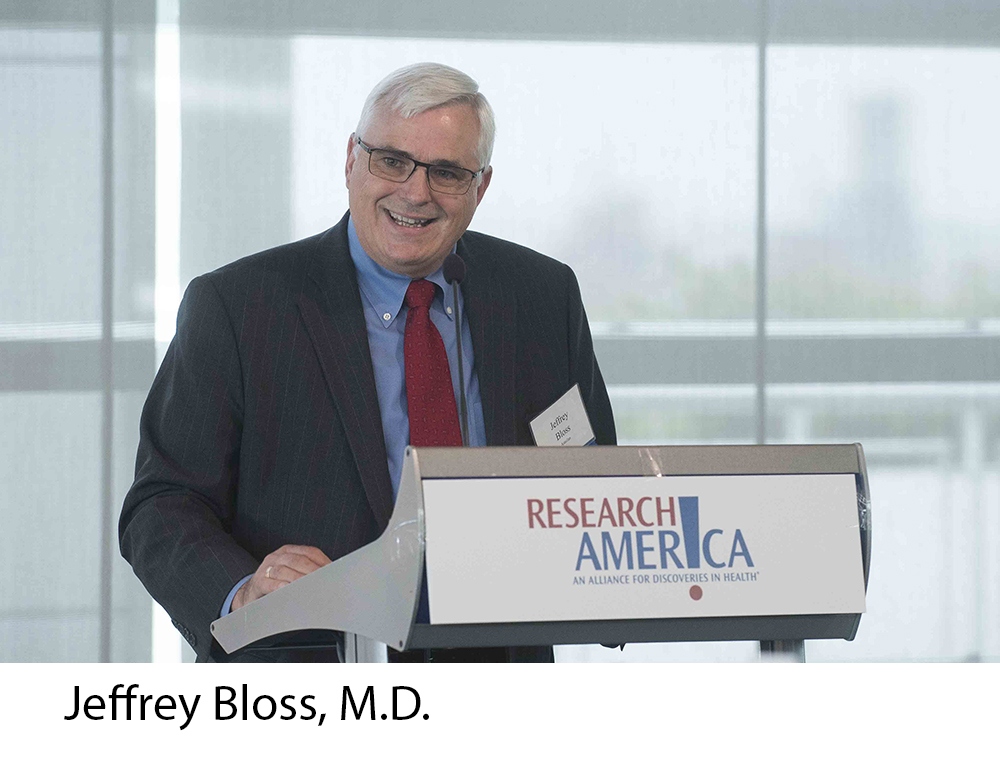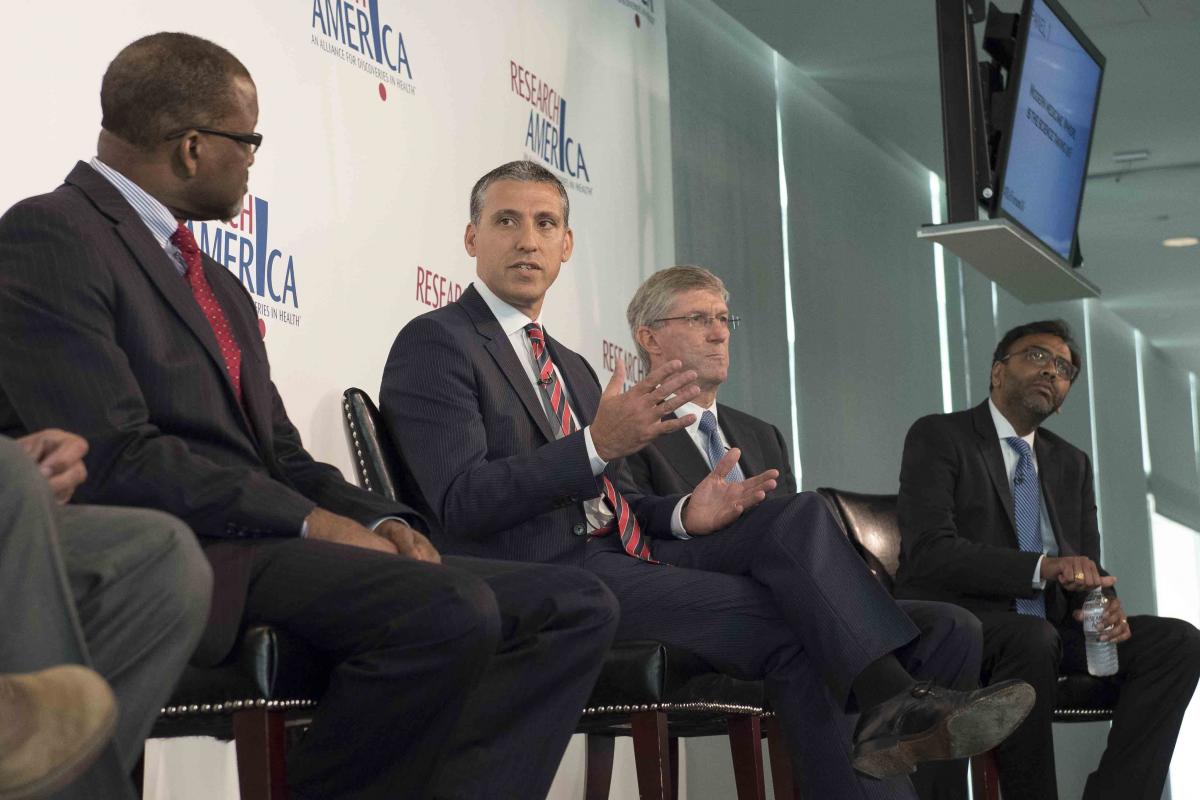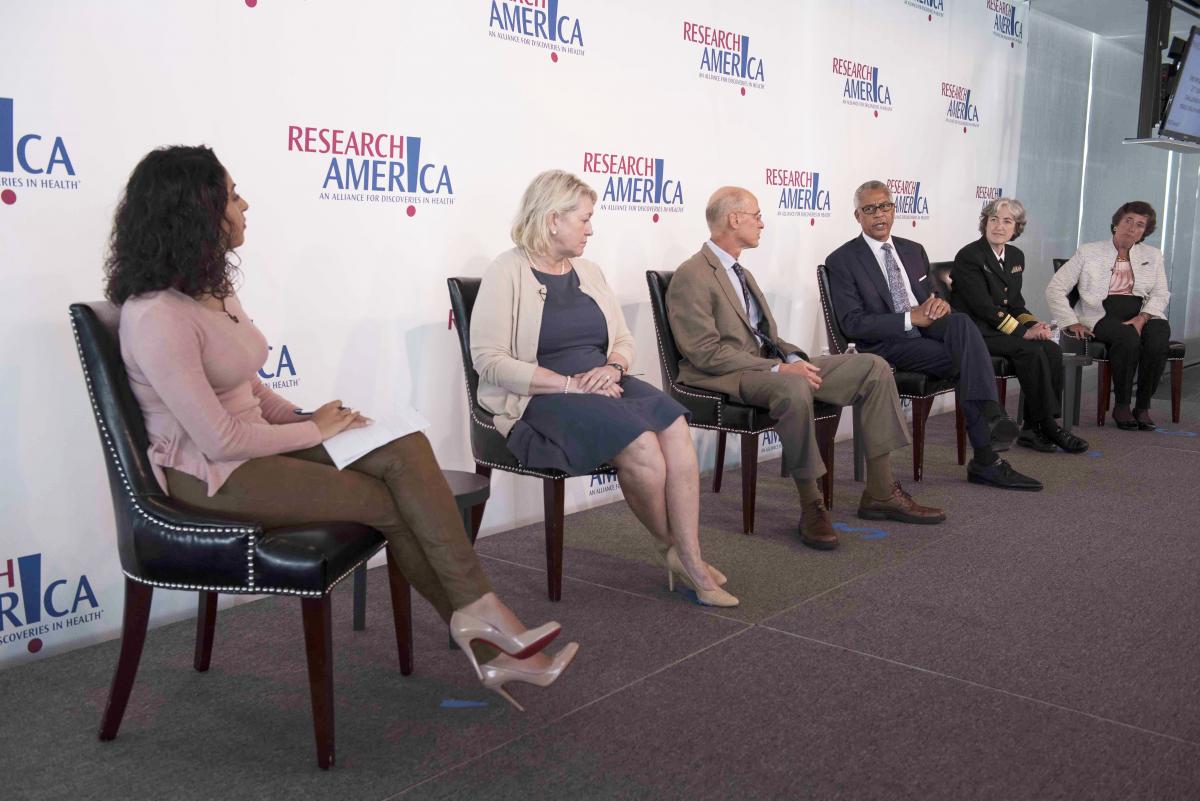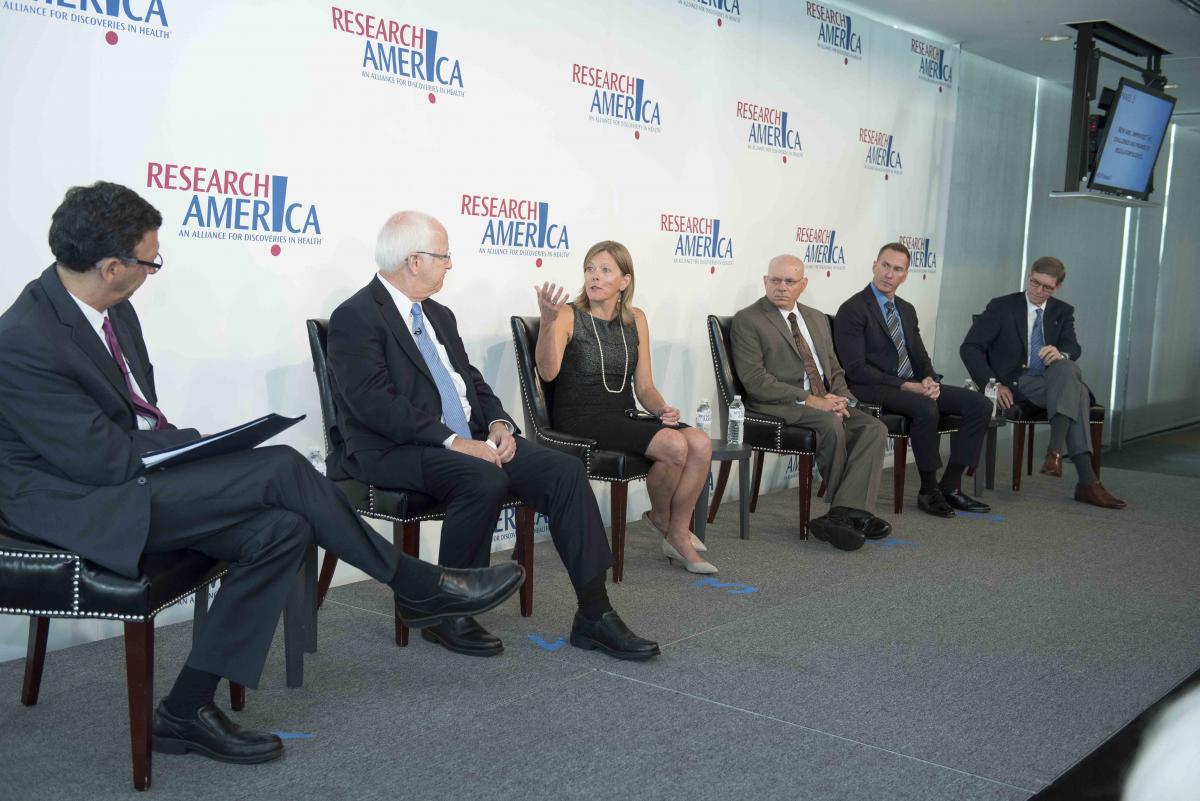2015 National Health Research Forum
Straight Talk: Advocacy for a New Era in Science
 Where is science taking us and how do we leverage the opportunities before us to advance medical progress? Leaders representing various sectors of the research community expressed their views on legislative and regulatory issues, and our nation’s research infrastructure at Research!America’s 2015 National Health Forum Thursday, September 10 at the Newseum in Washington, DC. Jeffrey Bloss, M.D., senior vice president of scientific and medical affairs, Astellas Pharmaceuticals U.S., lead sponsor of the event, discussed the importance of collecting, analyzing and disseminating real-world evidence, and engaging in value-based decision making. “Patient care will benefit from modernized regulatory framework that encourages the development and dissemination of accurate, data-driven information that includes real world data to improve patient care,” Bloss said. “And we rely on impassioned advocacy to achieve these changes.”
Where is science taking us and how do we leverage the opportunities before us to advance medical progress? Leaders representing various sectors of the research community expressed their views on legislative and regulatory issues, and our nation’s research infrastructure at Research!America’s 2015 National Health Forum Thursday, September 10 at the Newseum in Washington, DC. Jeffrey Bloss, M.D., senior vice president of scientific and medical affairs, Astellas Pharmaceuticals U.S., lead sponsor of the event, discussed the importance of collecting, analyzing and disseminating real-world evidence, and engaging in value-based decision making. “Patient care will benefit from modernized regulatory framework that encourages the development and dissemination of accurate, data-driven information that includes real world data to improve patient care,” Bloss said. “And we rely on impassioned advocacy to achieve these changes.”

Gary Gibbons, M.D., director, National Heart, Lung, and Blood Institute, National Institutes of Health (NIH), described success stories in cardiovascular research and noted that patients are more involved in how their data is used in research. Reproducibility issues were also discussed in-depth, along with potential solutions. “We think about reproducibility in two ways; first of all, is there enough information about the experiment to reproduce it in the first place, and secondly was the way in which the data presented ethically correct or was it somehow doctored so it does not become reproducible, said Ron Mobed, chief executive officer, Elsevier. “Within the environment of journal publications, one of the things we can do is make access to the underlying data easier for the reader. Because the journal is meant to be the document of record it should be the place where it has the integrity that you’re looking for in reproducibility.”
Other panelists included; Sudip S. Parikh, Ph.D., vice president and general manager of health & analytics, Battelle; and Vincent A. Forlenza, chairman, chief executive officer and president, BD.
The second panel, moderated by Seema Yasmin, M.D., medical analyst at CNN, looked at the prevalence of chronic conditions, antimicrobial resistance, telemedicine, vaccines, emerging public health issues and challenges of communicating the value of public health and health services research. Richard Kronick, Ph.D., director, Agency for Healthcare Research and Quality, acknowledged his agency must do a better job communicating the value of AHRQ’s work to improve quality of care but challenges remain in “figuring out how to deliver the care we know works. A very big public health challenge is how to deliver that care.”

Anne Schuchat, M.D., principal deputy director, Centers for Disease Control and Prevention, noted that public opinion is shifting on vaccines with recent measles outbreaks. And Lucinda L. Maine, Ph.D., RPH, executive vice president and CEO, American Association of Colleges of Pharmacy, said pharmacists could play a critical role in administering vaccines in communities across the country. Other panelists included Barbara Newhouse, president and CEO, The ALS Association; Reed V. Tuckson, M.D., FACP, managing director, Tuckson Health Connections, LLC.
Regulatory science was the focus of the third panel moderated by Frank Sesno, director of the George Washington University School of Media and Public Affairs. Biomarkers, adaptive clinical trial designs, risk benefit analysis, incorporating the patient perspective, the 21st Century Cures Act and the Senate Innovation Initiative were among the topics of discussion. Stephen M. Ostroff, M.D., acting commissioner, Food and Drug Administration (FDA), said the agency is satisfied with the 21st Century Cures bill approved by the House, but stressed that more resources are necessary to carry out the FDA provisions in the measure. “We are comfortable with the content of that bill, and it will not interfere with the ability for the FDA to oversee the effectiveness and safety of new treatments,” Dr. Ostroff shared. “It’s very important for [the FDA] to keep up with the pace of change and the pace of innovation, and that we can properly evaluate the breakthroughs that come to us.”

“We shouldn’t overlook some of the really important things, such as…more focus on groups that are not currently well represented in clinical trials, including minorities, women and children, and decreasing the regulatory burdens for scientists and the FDA,” said Larry J. Shapiro, executive vice chancellor for medical affairs, Washington University in St. Louis. Other panelists included William Hait, M.D., Ph.D., global head of research & development, Janssen Research and Development; Amy Comstock Rick, J.D., president and chief executive officer, Food and Drug Law Institute; and Marc Boutin, J.D., chief executive officer, National Health Council.
Watch the videos from each panel, read the transcript, view the photo gallery and the photo slick, and read the WebMD live recap.





